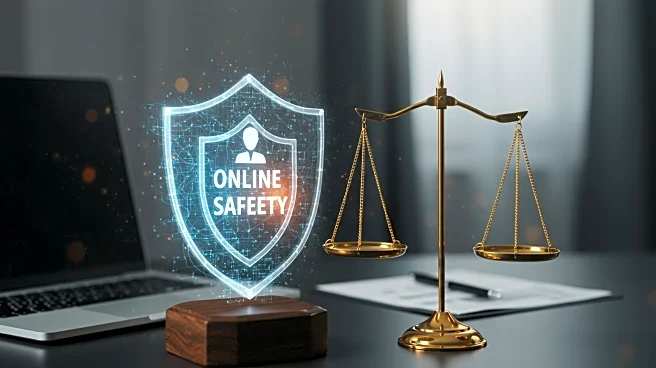What's Happening?
The online message board 4chan, represented by lawyer Preston Byrne, has announced its refusal to pay fines imposed by the UK's media regulator, Ofcom, under the Online Safety Act. Ofcom has provisionally decided to impose a £20,000 fine with daily penalties for non-compliance with requests for information. Byrne argues that Ofcom's notices do not create legal obligations in the United States, where 4chan is incorporated, and claims the investigation is an illegal campaign of harassment against US tech firms. The law firms Byrne & Storm and Coleman Law have stated that American businesses are protected by the First Amendment and do not surrender these rights due to foreign regulations. They have also indicated that they may seek relief in US federal court to uphold these principles.
Why It's Important?
This development highlights ongoing tensions between US tech companies and foreign regulatory bodies, particularly concerning free speech and data privacy. The refusal by 4chan to comply with UK fines underscores the challenges of enforcing international laws on US-based platforms. The situation could set a precedent for other American companies facing similar regulatory pressures abroad. The Trump administration and its allies have expressed concerns over perceived overreach by foreign governments, which could impact US tech firms' operations and policies. The case also raises questions about the balance between protecting users from harmful content and preserving free speech rights.
What's Next?
If 4chan continues to resist the fines, Ofcom may explore alternative enforcement measures, such as disrupting 4chan's UK business operations or blocking UK access. The legal battle could escalate, potentially involving US federal courts to affirm First Amendment protections for American companies. The outcome may influence future interactions between US tech firms and international regulators, shaping how cross-border compliance is managed. Additionally, the Trump administration may leverage diplomatic and legal channels to support 4chan and similar companies in defending against extraterritorial mandates.
Beyond the Headlines
The case touches on broader ethical and legal issues regarding the regulation of online platforms and the protection of free speech. It raises questions about the extent to which foreign laws can influence US-based companies and the potential implications for global internet governance. The situation also reflects ongoing debates about the role of tech companies in moderating content and the responsibilities they hold in different jurisdictions.








